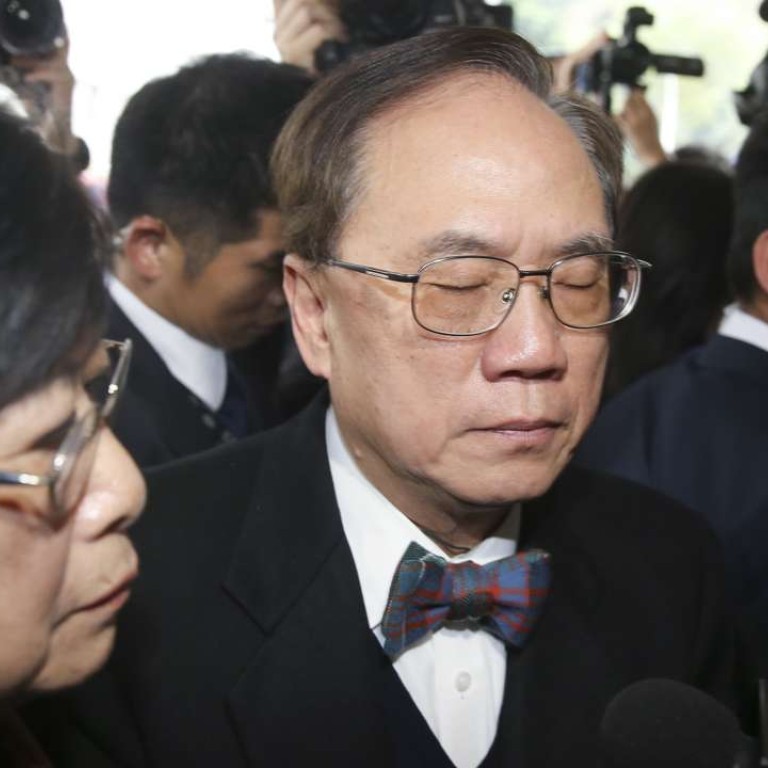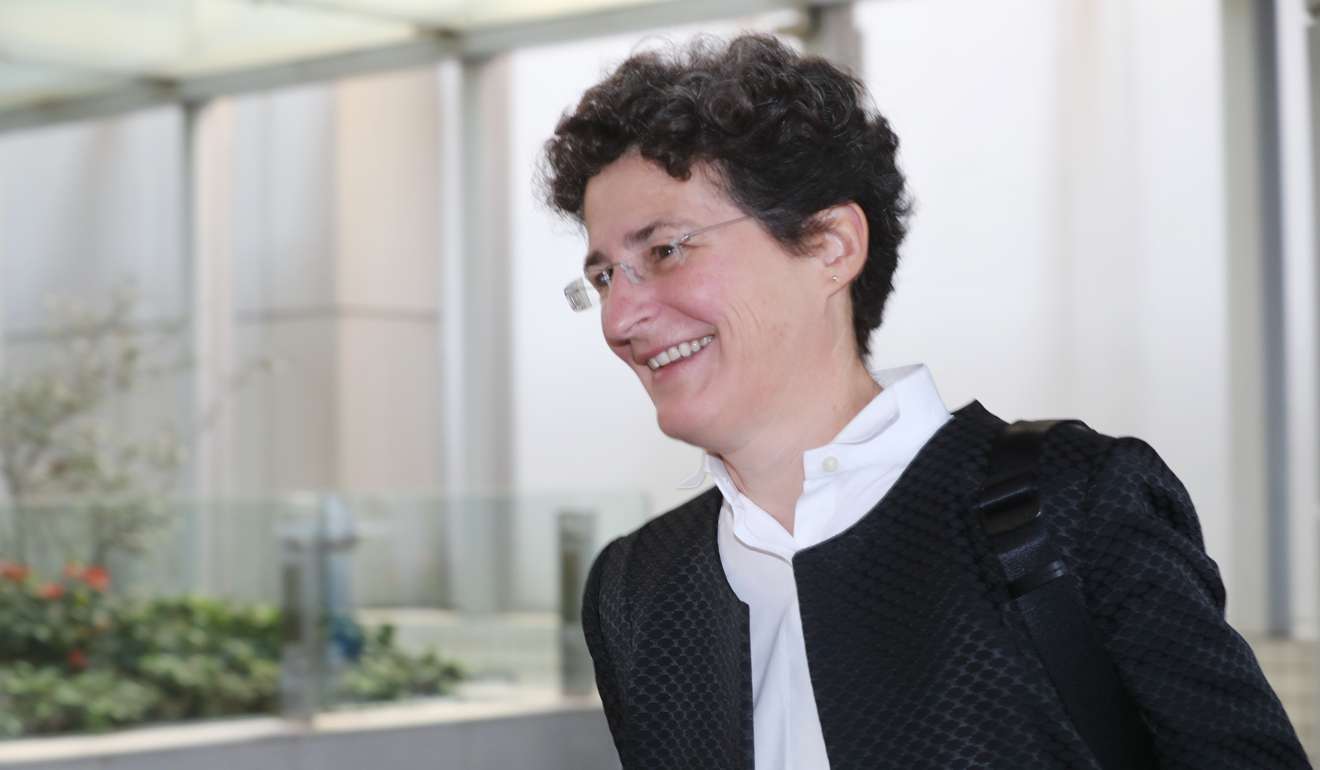
Donald Tsang faces ‘uphill’ appeal battle but has better shot at getting jail term cut, lawyer says
Law firm partner believes best course of attack would be to check if judge gave jury appropriate direction on how to interpret law
Before the former chief executive was sentenced on Wednesday, his lawyer Clare Montgomery QC told judge Mr Justice Andrew Chan Hing-wai there would be a “possible appeal” against conviction.

Dominic Wai, a partner at ONC Lawyers, described Tsang’s appeal against his conviction as an “uphill battle”.
“It would not be easy – but they can always try,” he told the Post.
The nine-member jury found Tsang had intentionally failed to disclose a conflict of interest, but at trial Montgomery argued he did not need to disclose it because the link was “far fetched” and the rules were vague.
Wai said the defence could reiterate this line during appeal, but it was unlikely to be successful as the jury had already decided they did not agree.
“If the jury didn’t buy that, then it would be difficult for them [the defence] to raise that in the appellant stage.”
The best course of attack would be check whether the judge had given the jury appropriate direction on how to interpret the law, Wai said. But he was not optimistic that would be successful as the judge had seemed “very careful”.
Wai felt Tsang could have a better shot in appealing against the sentence. “It’s possible that he might be able to knock some time out on that one.”
One can only imagine that there was intense discussion in the jury room
University of Hong Kong law professor Simon Young Ngai-man saw “some merit” in arguing that the sentence – a starting point of 30 months in jail, cut to 20 months largely thanks to Tsang’s years of public service – was too high.
The jury asked several questions during their deliberations, including the definition of bribery, and Young said the jury seemed to have struggled with the judge’s directions.
“One can only imagine that there was intense discussion in the jury room,” he said, noting that they had returned different verdicts on each of the three charges.
“Though this is not a ground of appeal, it does foretell that the appeal court will look closely at this case to ensure that there has been no miscarriage of justice.”
Fellow University of Hong Kong legal expert Eric Cheung Tat-ming said lawyers tended to focus on the judge’s direction or decision to allow certain evidence when appealing.
Even if the judge did not make a mistake in his direction, lawyers could argue juries had made the wrong decision, but Court of Appeal judges were unlikely to agree with them as it would undermine the jury system, he said.
Tsang is expected to face retrial in September on a bribery charge, after the jury could not agree on a verdict. He was acquitted on a separate count of misconduct in public office.

